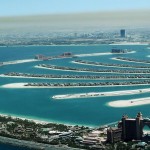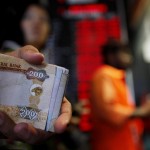Dubai has over 20 free zones to encourage international investment by allowing 100 percent foreign ownership of companies, complete repatriation of capital and profits, and a number of other incentives to streamline economic activity.
Each zone is specific to a certain industry, with its own set of regulations. Dubai Production City, for example, is for companies dedicated to publishing, printing and packaging, while Dubai Internet City is an information communication technology hub, where the likes of Google, Microsoft and Uber have set up shop.
Though these areas may indeed stimulate economic growth, the lax controls and enforcement can also attract criminal, terrorist, and kleptocratic elements, says Clay Fuller, a fellow in Foreign and Defense Policy Studies at the Washington, D.C.-based American Enterprise Institute.
The financial sectors of most secretive jurisdictions, such as the British Virgin Islands or the Cayman Islands, are shielded from foreign oversight by their governments. Dubai does this with a twist — control is exercised by members of the ruling family.
Since 2004, the Dubai International Financial Center (DIFC) has been the emirate’s free zone for financial services.
It is led by Sheikh Maktoum bin Mohammed Bin Rashid al Maktoum, Dubai’s deputy ruler. Al Maktoum has said the financial services sector is one of the most significant contributors to Dubai’s GDP.
Born in 1983, he is a graduate of the American University of Dubai and also chairs the Financial Audit Authority, Dubai Judicial Council, Dubai Creative Clusters Authority, and Dubai Media Incorporated, the state media company.
The financial free zone he leads reported record growth in 2017, registering 315 new companies and enjoying 25 percent increase in net profits to US$ 99 million.
“The Centre remains committed to provide best-in-class services and infrastructure to its growing community to help them advance their businesses,” al Maktoum said in a news release earlier this year. “DIFC’s commitment is in line with Dubai and its leadership’s ongoing efforts to support a variety of sectors, including financial services.”
Even the Dubai Financial Services Authority (DFSA), the DIFC’s regulator, is bound to the ruling family.
According to the DFSA website, its Chief Executive and staff are appointed by al Maktoum.
The authority’s board currently has 11 directors, all “leading industry, legal and regulatory experts drawn from major international financial jurisdictions,” such as London, Australia, New York, and Singapore.
But they, too, can be checked.
Ian Hay Davison and Phillip Thorpe, then respectively chairman and chief executive of the DFSA, were fired in 2004 after apparently challenging conflicts of interest in its operations, according to a report by the Evening Standard.
Hay Davison was the Chief Executive and Deputy Chairman of Lloyd’s of London and has held a number of high-profile regulatory roles. Thorpe was a former managing director of the UK Financial Services Authority.
The free trade zones are notorious for criminal activities such as arms trafficking and cigarette smuggling.
For example, Albanian organized crime groups work out of the zones through hundreds of cigarette traders who legally buy tax-free cigarettes for airports and other duty-free areas. A tobacco industry insider who asked to remain anonymous for fear of retribution detailed the process for OCCRP.
Using a technique called “sweeping up,” criminal gangs have dozens of trading houses, some of which they control, buy a few dozen extra boxes of cigarettes in each shipment, a small enough amount that it won’t alert cigarette companies. Gangs buy up the extra cigarettes and combine the surplus into one large shipment that gets smuggled into European ports, usually using doctored paperwork. The cigarettes, bought by the gang for 30 to 50 euro cents a pack, are then sold for €7 to €12 per pack around Europe, earning the Balkan gangs hundreds of millions in profits.
This story is part of the Global Anti-Corruption Consortium, a collaboration started by OCCRP and Transparency International. For more information, click here.




